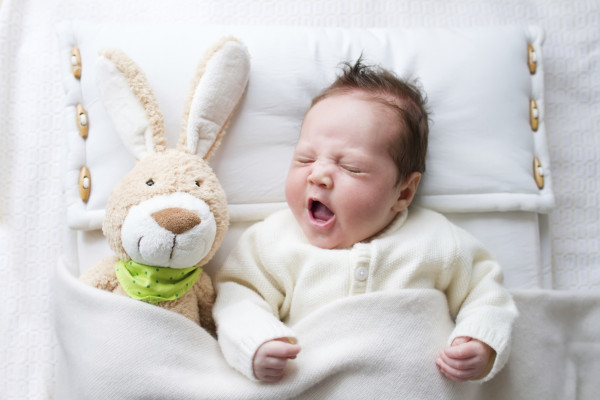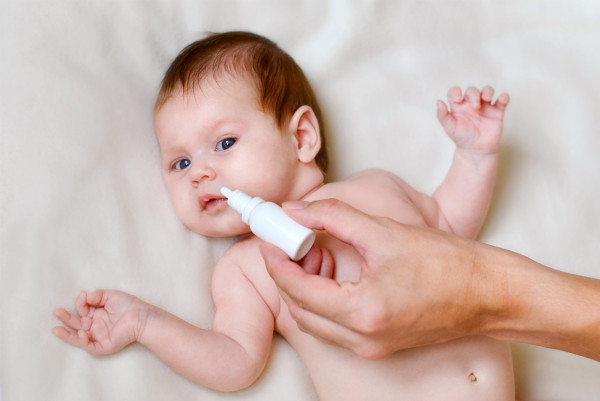Runny nose in infants: causes and methods of treatment
The baby's body is much more susceptible to various diseases than older children. One of the common problems is a runny nose. It is difficult to deal with him, first of all, due to the fact that the child is too small, naughty, crying. But, whatever one may say, it is also impossible to ignore the runny nose of the crumbs.
Content
Physiological runny nose in infants
The mucous membrane of the nose in babies is especially sensitive, so respiratory diseases often occur. However, in newborns, a runny nose is usually not a symptom of the disease, but is caused by physiological reasons.
The baby's body gradually adapts to the environment. Immediately after birth, the baby's nasal cavity is dry, but gradually it becomes moisturized. The mucous membrane of the nose begins to work normally only 2.5 months after the birth of the child, and parents take this physiological process for a runny nose.
Since this is not a disease, no special measures are needed. You just need to make sure that the air in the baby's room is fresh and the temperature is comfortable. It is necessary to do often wet cleaning, but from application it is better to refuse household chemicals.
Runny nose and cough in infants
However, rhinitis is not always caused by physiological reasons. Other factors can also provoke it:
- Hypothermia, as a result of which the thermoregulation of blood vessels in the sinuses is disrupted.
- Allergic reaction. It can occur on dust, household chemicals (for example, powder used to wash a child's clothes), the smell of smoke if parents smoke, as well as infant formula.
- Bacteria and viruses that, due to weak immunity or for other reasons, develop on the mucous membrane of the nasopharynx.
- The air in the nursery is too dry.
- Trauma or foreign body that has entered the nasopharynx.
Sometimes, against the background of a runny nose, cough and temperature. Most often, these symptoms indicate that the baby has a cold.
In some cases, bronchial asthma is the cause of the cough. This, at first glance, an adult disease can occur in infants, if the parents have not paid attention to the manifestations of allergies for a long time.
How to treat a runny nose in a baby
If there is no need to treat a physiological rhinitis, then an infectious one must be fought. For this, there are medications and folk remedies. Medicines are prescribed by a pediatrician based on the diagnosis, and from folk remedies, the following bring a good effect:
- A solution of sea or ordinary table salt. A tablespoon must be diluted in a liter of boiled warm water, one drop must be instilled every hour.
- Breast milk. It contains substances that protect the nasal mucosa from microbes.
- If there is no allergy, you can use a decoction of chamomile, yarrow or calendula for instillation.
In addition, parents need to be aware that the baby's nose cannot be rinsed. Fluid entering under strong pressure can penetrate the tube connecting the nose and throat and provoke otitis media.
Drops from the common cold in infants
The most important task in treatment is to prevent dryness of the nasal mucosa, otherwise bacteria and viruses can enter the bronchi and cause serious complications such as bronchitis or pneumonia. For this reason, drops cannot be used to narrow blood vessels: they can just dry out the mucous membrane.
Drops such as Aquamaris or Otrivin Baby are suitable for moisturizing the nasal cavity. The content in the composition of sea water helps to clear the nose and disinfects well.
If the runny nose is severe, Ectericide will probably help the baby. This liquid has an oily structure, well envelops the mucous membrane and prevents dryness.
Even the smallest are shown a remedy for the common cold Derinat is a herbal preparation that improves immunity. It is instilled in 3 drops into each nostril at intervals of about two hours.
Sometimes pediatricians still prescribe drops that constrict blood vessels to babies. In this case, you can choose Nazol Baby or Nazivin. They are buried in no more than 6 hours within three days.
If a young child's runny nose is caused by trauma, allergies, or viruses, treatment should be started as soon as possible. Delay can lead to malfunctioning of the nasal mucosa and the development of chronic diseases.






